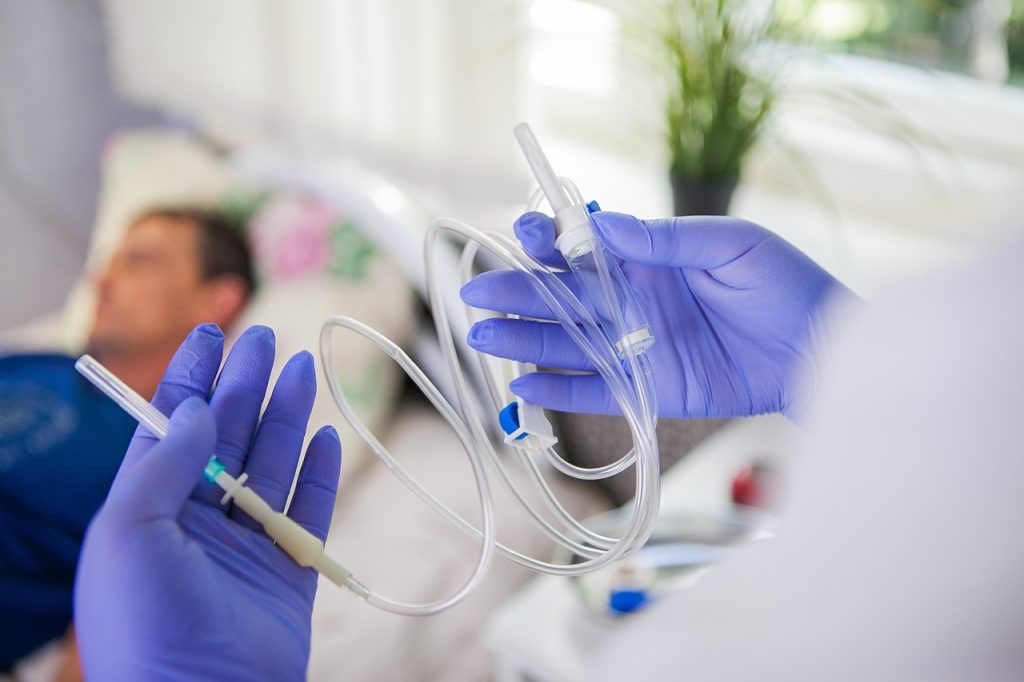Tips for Achieving a Healthier Gut Microbiome
Everyone’s heard the old axiom, “You are what you eat.” That’s turning out to be even truer than we used to think. The more researchers learn about the gut microbiome, the clearer it becomes that it’s critical to overall health.
As the pros at Revive MD know, the gut isn’t just where food gets digested. Your gastrointestinal (GI) system is also home to trillions of microbes. Keeping this microbial community healthy supports not just better absorption of nutrients but also improved immune, hormone, and overall health.
What Is the Gut Microbiome and Why Is It Important?
The term “gut microbiome” refers to all of the many helpful and harmful bacteria living in a person’s digestive tract. On average, each person has around 200 species of microbes in their GI system. They include bacteria, viruses, and fungi.
When the balance of microbes within a person’s gut gets disturbed, it can lead to potentially serious chronic diseases, from metabolic disease to colorectal cancer. Imbalances in the gut microbiome can even affect parts of the body that seem at first glance to be unrelated to the GI tract, impacting things like sleep, mood, and immune responses.
If you want to maintain overall good health, making sure you have a balanced gut microbiome is one of the best ways to start. Let’s take a look at some of the top scientifically supported tips for achieving this important goal.
1. Get More Fiber
Fiber is an interesting substance. Unlike essential vitamins and minerals, it’s indigestible. Both soluble and insoluble fiber aren’t food for people. Instead, they feed the gut microbiome.
There are a few ways to increase fiber intake. The best place to start is by adding fruits and vegetables to your daily diet. Try to add vegetables that feed beneficial microbes, such as:
- Onions
- Leeks
- Broccoli
- Asparagus
- Artichokes
Spinach and other leafy greens
If you’re having trouble getting in enough fiber through diet, alone, you may want to try a fiber supplement. Choose one that contains a balance of soluble and insoluble fiber from natural sources like psyllium, flaxseed, and inulin.
2. Add Probiotics to Your Daily Routine
Probiotics are live bacteria that repopulate the gut with helpful microbes. As with fiber, you can get probiotics from either food-based or supplemental sources. You can start by adding low-sugar fermented foods to your daily diet. Live-cultured fermented foods are chock full of probiotics.
There are a few things you should know before you start upping your consumption of fermented foods. The first is that you should start slow. Try adding one serving of yogurt, sauerkraut, or kombucha to your daily routine, then go from there. Otherwise, you may experience some digestive upset.
The second thing to know is that fermented foods need to have live, active cultures to be effective. For some foods, like yogurt, that requires adding live cultures back in after the pasteurization process. For others, it requires live fermentation and subsequent refrigeration. Think pickles found in the produce section versus on the shelves.
Finally, if you want to maximize the impact of this tip, you’ll need to get up to consuming four to five servings of fermented foods per day. If that sounds like a lot, we recommend adding a probiotic supplement instead. Just be sure it contains live, active cultures of physician-recommended probiotics.

3. Cut Back on Sugar
Sugar and simple carbohydrates are staples of the Western diet, but they don’t feed your gut microbiome. Instead, they get digested very quickly in the small intestine. The beneficial microbes in the rest of your GI tract can starve to death without adequate nutrition. A diet high in processed carbohydrates and sugar can wind up giving the upper hand to harmful bacteria instead.
Cutting back on sugar can be harder than you would think since it’s often found in unexpected places and can be labeled misleadingly. The easiest way to avoid hidden sugars is to avoid processed foods. For those who do eat processed foods, keep an eye out for monosaccharides in seemingly healthy things like nut butters, salad dressings, and yogurt.
4. Minimize the Use of Antibiotics
There are times when antibiotic use is unavoidable. Serious infections and bacterial diseases often need to be treated using this approach, so don’t go against a doctor’s advice. You should, however, be aware that antibiotics often disrupt the gut microbiome.
When there’s no avoiding antibiotic use, be sure to combat the negative impact they can have on the gut microbiome by eating a diverse, healthy diet high in fiber, prebiotics like whole grains and legumes, and probiotics like fermented foods. Many healthcare professionals also recommend taking probiotic supplements during or after antibiotic use.
5. Consider Going Organic
Eating a plant-based diet can go a long way toward increasing fiber, prebiotic, and probiotic intake naturally. However, not all plants are equal. Organic fruits and vegetables are grown in microbe-rich, living soil. As a result, these plants are richer in polyphenols and other essential nutrients required for your gut microbiome to thrive.
Not everyone can afford to buy only organic vegetables. For those who can’t afford to go organic, focusing on avoiding certain types of vegetables that require heavy pesticide, herbicide, or synthetic fertilizer use when grown with conventional farming practices can still help. Those chemicals may help keep plants alive, but they can leave behind residues. Here are the top offenders:
- Strawberries
- Spinach
- Dark, leafy greens
- Peaches, pears, and nectarines
- Grapes
- Peppers
- Green beans
The ideal is always to consume only organic foods. However, it’s better to eat a diverse diet rich in fruits, vegetables, and lean meats than it is to restrict those foods because they’re too expensive to buy organic.
Give Your Gut Microbiome a Boost
Changing your diet or lifestyle doesn’t have to happen overnight. If you want an easy place to start making improvements to your gut microbiome, start with high-quality supplements that target the GI system.
Revive MD is committed to producing high-quality, vegan, non-GMO, and gluten-free supplements to keep people and their gut microbiota healthy throughout their lives. There are never fillers or synthetic ingredients to worry about, and you can find blends that include probiotics, prebiotics, and nutrients essential to digestive support.






